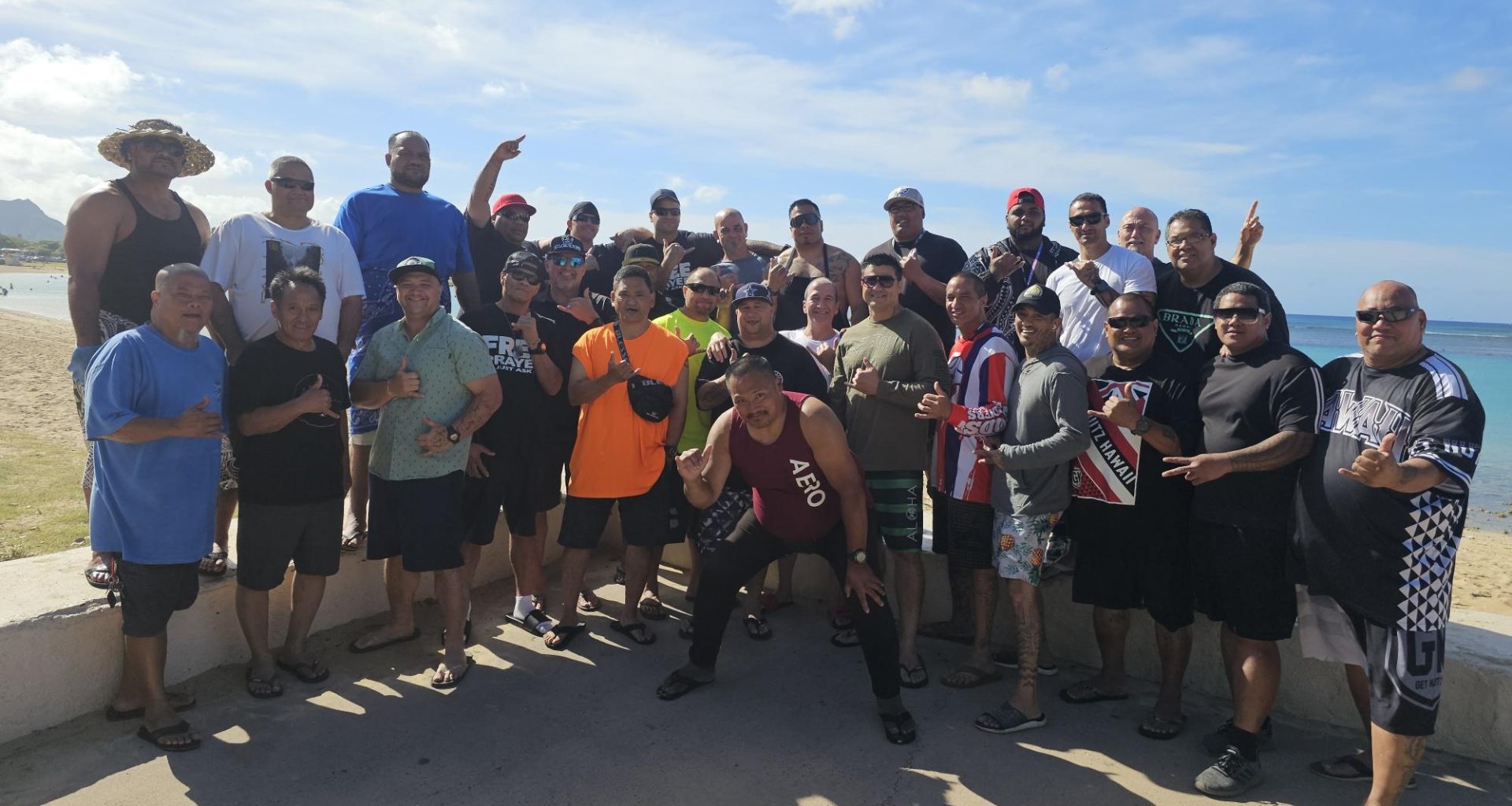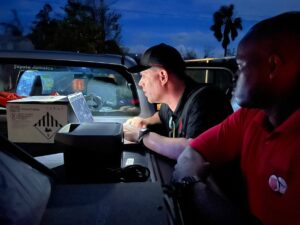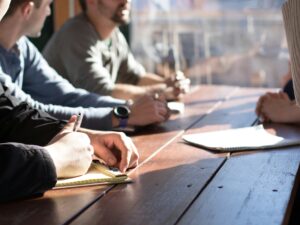Church on the Beach fosters recovery through worship, community connection and outreach, bringing support and hope to all.
As the sun rises over the Pacific at Ala Moana Beach Park in Honolulu, about 30 Adult Rehabilitation Center (ARC) graduates set up for a Sunday service on the sand.
There are no walls or pews—just open skies, rolling waves and the community coming together.
It’s called Church on the Beach, a monthly event organized by the Honolulu ARC blending worship, fellowship and outreach. The gathering brings together ARC program participants, graduates, families and members of the surrounding community.
The goal is to unite people in recovery through connection, service and community, reminding those involved that recovery isn’t a solo journey but one built through support systems.
Honolulu ARC Administrator for Development Major Erik Hoogstad said the tradition began around 2014 but paused during the COVID-19 pandemic. Since restarting in February 2024, it has drawn as many as 150 attendees.
“Men tell us how they haven’t visited the beach sober in years,” Hoogstad said. “Church on the Beach brings moments of reflection and shows participants that fun is possible in recovery, especially with Jesus by their side.”
For ARC graduates hosting the day, the work begins early—at 5:30 a.m.—as they prepare breakfast, assist with transportation and set up for the 8:30 a.m. service. Additionally, some graduates share their testimonies about how the ARC supported their journey to sobriety.
After worship, the gathering switches gears to a time of recreation, with participants filling the beach and park area with volleyball games, surfing, paddleboarding and fellowship. Graduates often bring their families. Some reconnect with old friends, while others forge new connections within the recovery community.
“A sense of belonging means a lot when someone is working through a fresh start.No one can do it alone.”
David Chung, Honolulu ARC Director of Operations
But the day doesn’t stop there.
After worship and fellowship, the group shifts to outreach—offering food, hygiene kits, prayer and information about the ARC to those in need. Some participants wear shirts that read: “Free prayer, just ask.”
Hoogstad said many individuals facing homelessness and substance abuse find refuge around Honolulu’s beaches.
“It’s a great way for men to be productive and support those neighbors facing difficult circumstances and situations,” he said.
During the March 2025 Church on the Beach day, the group handed out over 100 peanut butter and jelly sandwiches and prayed with around 20 people. Two men received information about the ARC and have since entered the program, where they’re now working toward stable, sober futures.
Hoogstad said Church on the Beach days help program beneficiaries recharge and reflect.
“We see a difference in the house with the men afterward,” he said.
According to The National Library of Medicine, strong relationships with peers and family can support effective substance recovery, with a supportive social network enhancing long-term sobriety. Additionally, strengthening one’s involvement in the community can foster belonging and purpose.
Honolulu ARC Director of Operations David Chung understands the importance of social support in recovery. He completed the ARC program for the second time in 2014 and said his first try didn’t stick because he chose not to stay connected.
“The first time, I tried to stay sober on my own after graduating, and I was unsuccessful,” Chung said. “The second time, I decided to stay involved and accept the support of those around me. That decision has kept me in recovery for 11 years.”
Now, he emphasizes the importance of connection and encourages friendships in recovery. To help, he created a Honolulu ARC alumni Facebook page, helping over 400 men stay connected after graduation.
“A sense of belonging means a lot when someone is working through a fresh start,” Chung said. “No one can do it alone.”
Chung said there are also benefits of uniting current and past ARC participants for fellowship and connection, as it creates a support network that shows the men in the program what is possible in recovery.
“It’s a good thing for everyone involved,” he said. “We’re seeing men walk away more inspired and motivated for their future.”
Do Good:
- What cause best fits your personality? Take our quiz and discover where you can make the biggest impact for good today.












